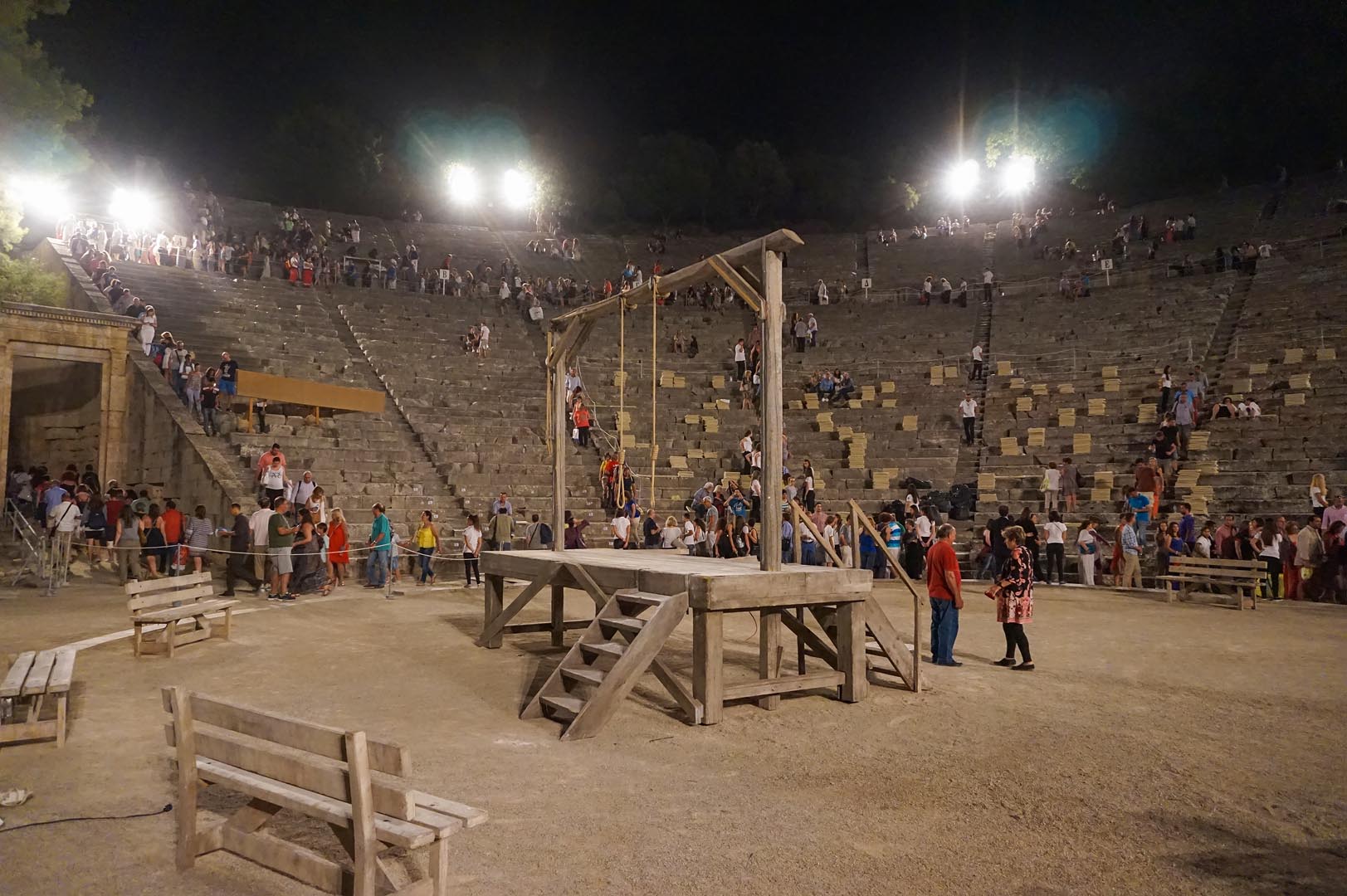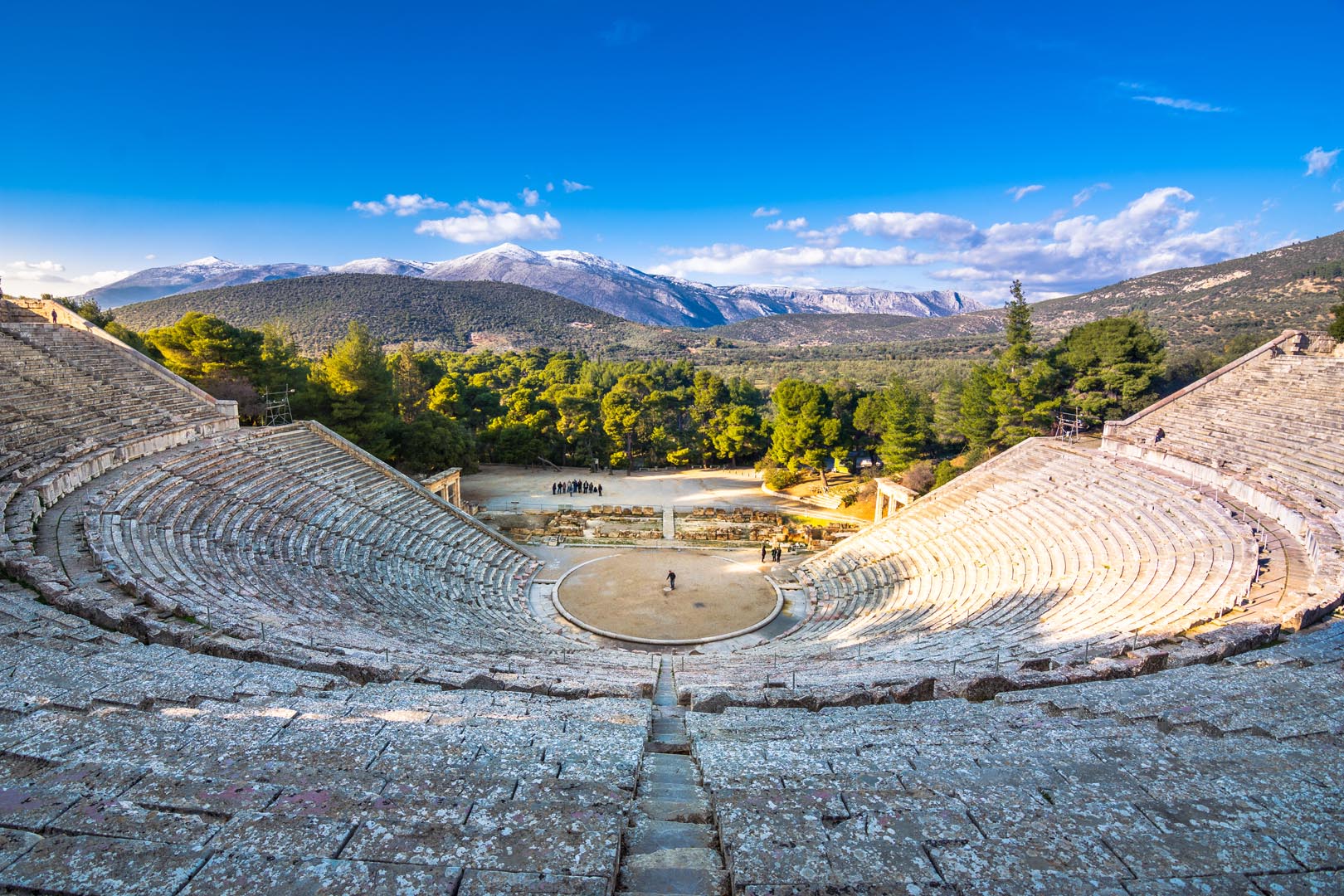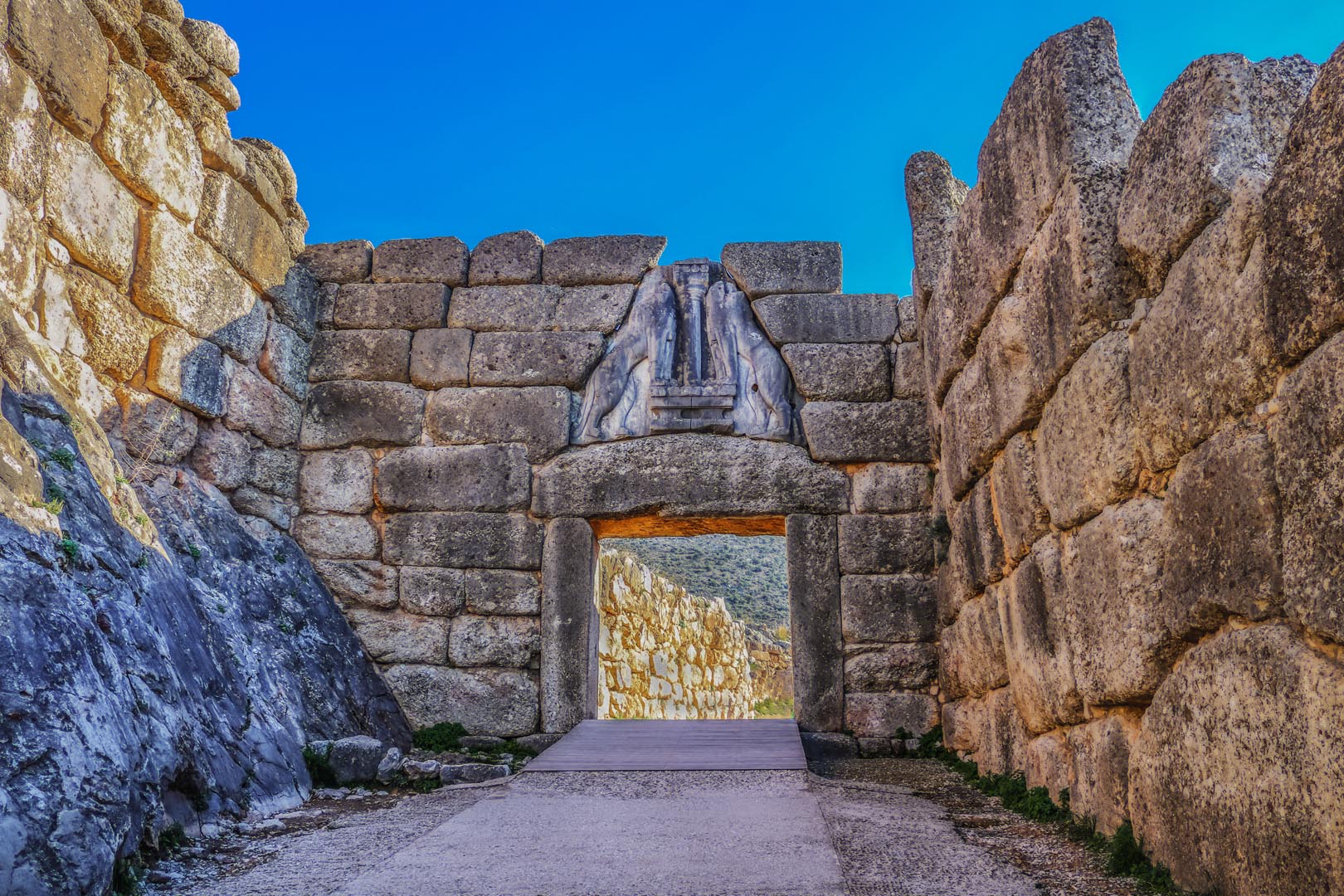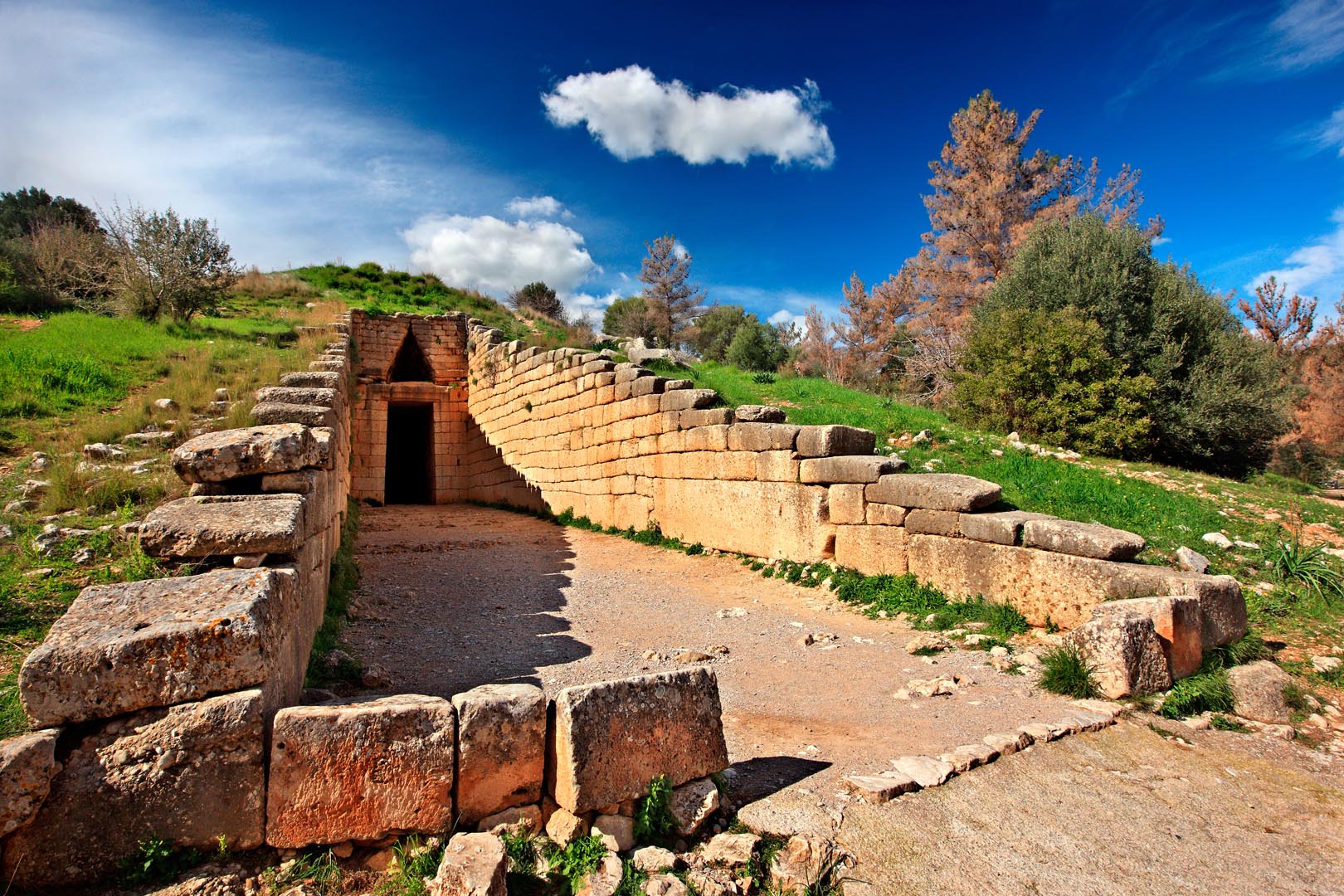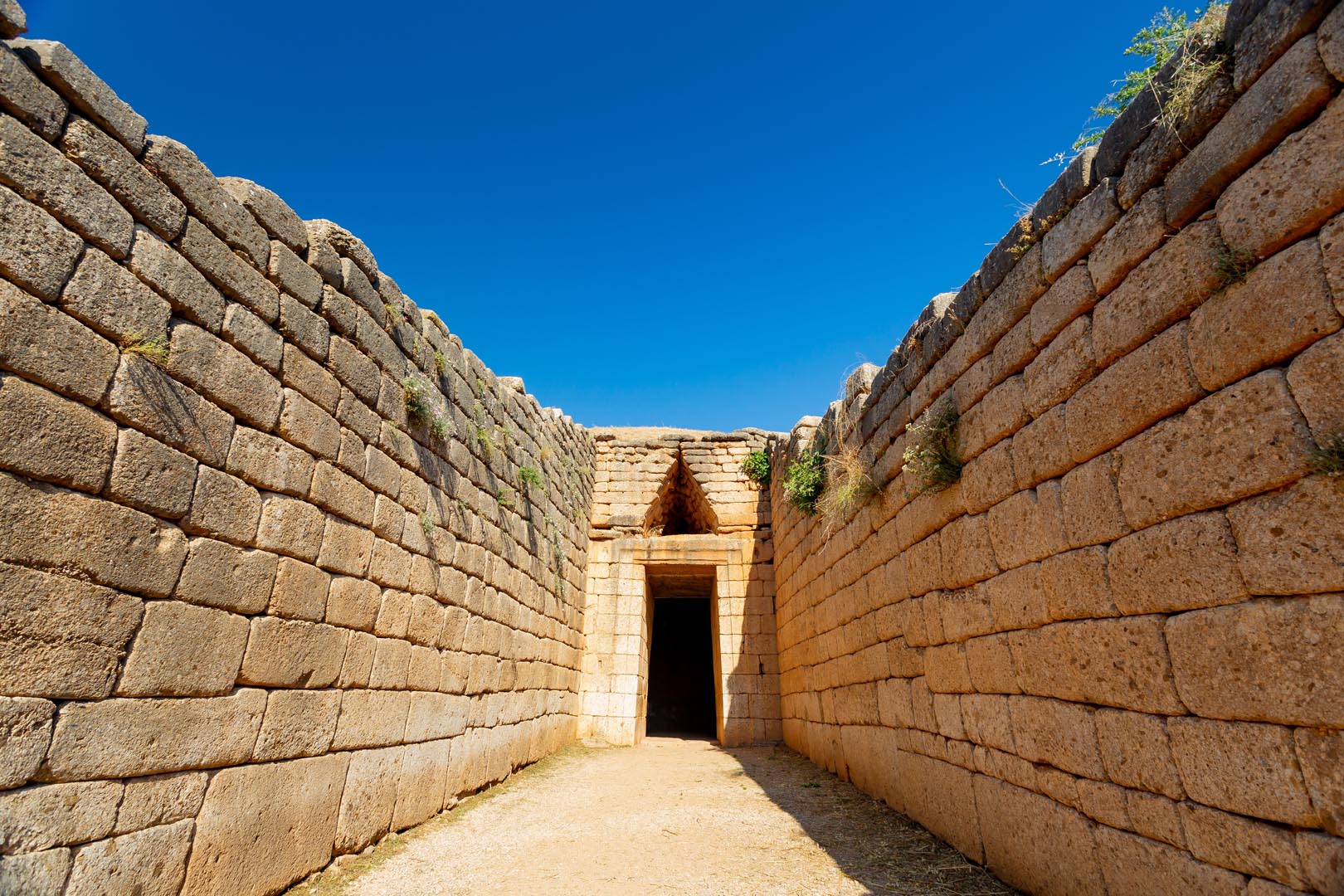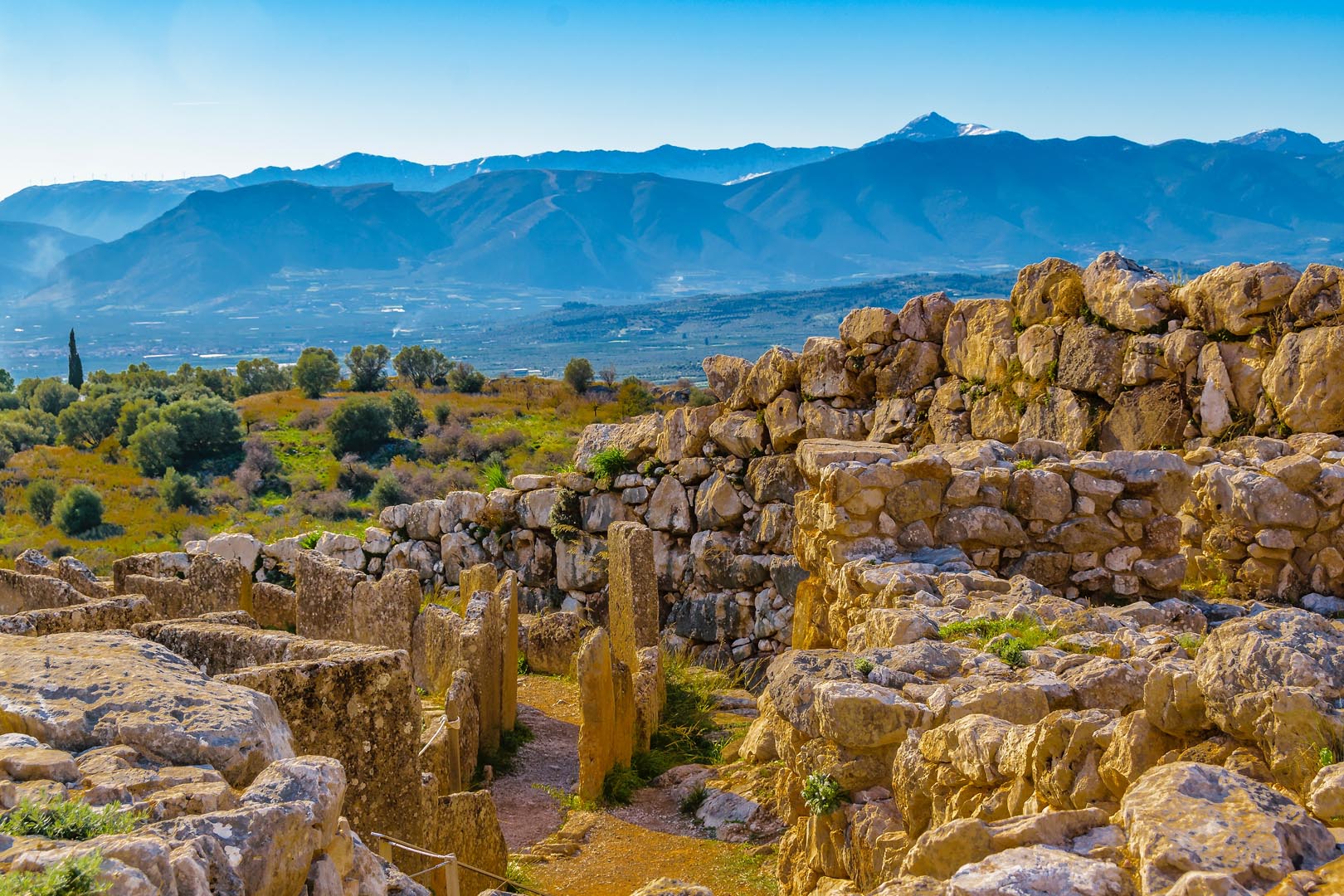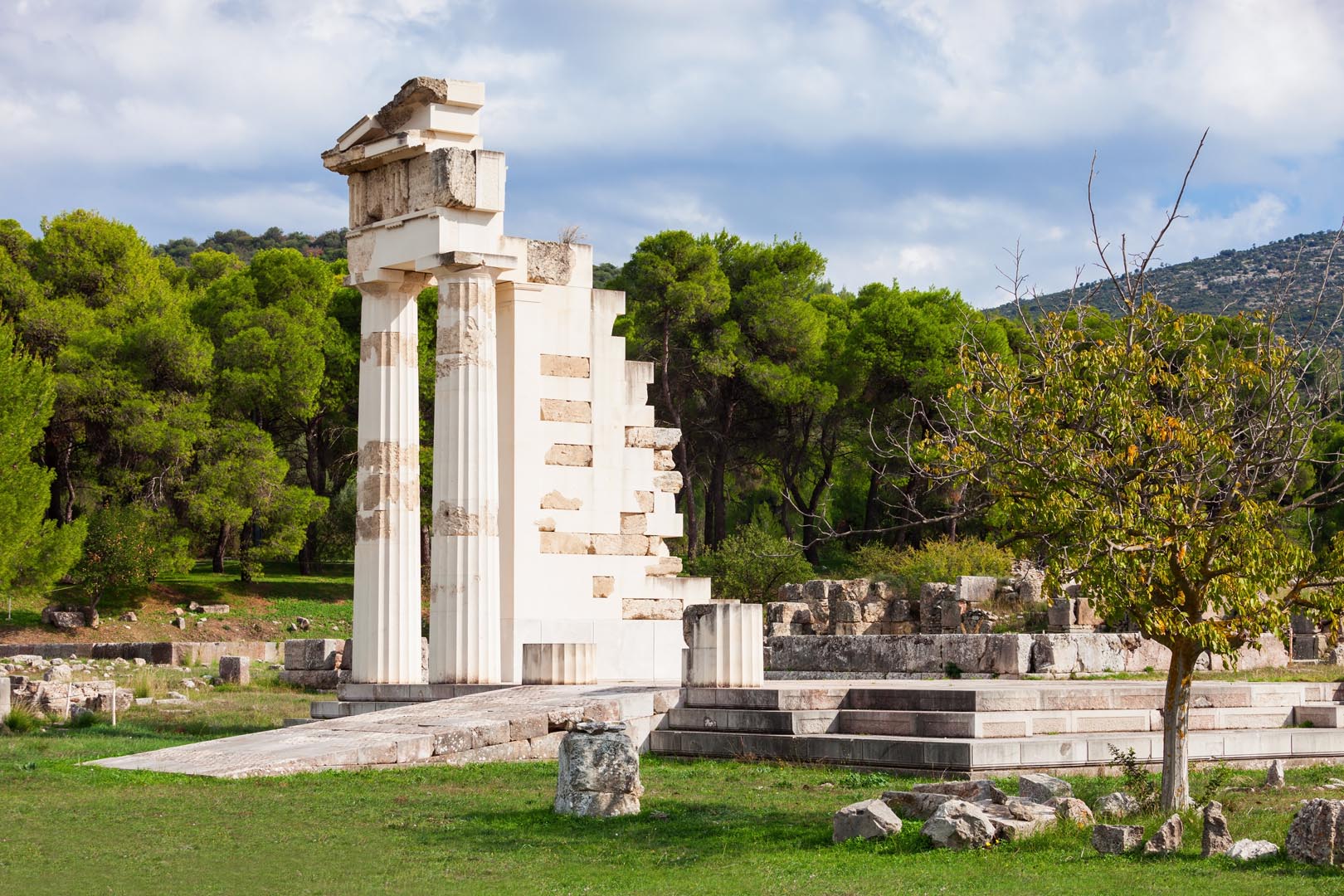Mycenae & EpidaurusA journey to the mythical bronze age and glorious classical Greece
Discover two places listed in the UNESCO World Heritage Sites, very close to each other, that played vital roles in different periods of Greek history.
Ancient Mycenae
One of the most significant archaeological destinations stands on a hilltop backed by powerful mountains: the somber and mighty ruins of Ancient Mycenae, the kingdom of legendary Agamemnon, who commanded the Greeks during the Trojan War.
In the 9th century BC, Homer referred to ‘well-built Mycenae, rich in gold.’ Until 1870, these poems were regarded as no more than gripping and beautiful legends. But it was then that the amateur archaeologist Heinrich Schliemann struck gold at Mycenae despite derision from professionals.
As you approach Ancient Mycenae, you will be struck by the imposing “Cyclopean Walls” – according to the myth, Cyclopses, giant one-eyed mythical creatures from Asia Minor, built the walls – and the Lion Gate, a symbol of the power of the Mycenaean Kingdom, perfectly symmetrical and unique in Europe.
The ruins of Ancient Mycenae paint a vivid picture of a civilization that was advanced for its time. Discover the Grave Circle A, Agamemnon’s Palace, the Secret cistern, and all the imposing tombs, including Agamemnon’s tomb.
Epidaurus theater
The protagonist of Ancient Greek drama is still in use today as it hosts all the significant Greek plays due to its excellent acoustics; a coin dropped in the theatre’s center can be heard from the highest seat.
It is more than just one of Greece’s best-preserved ancient theatres; it’s a one-of-a-kind archaeological site and the famous Asclepion of antiquity.
From the upper tier, peace and tranquillity reign over the horizon, and you immediately understand why the ancients chose this place to construct Epidaurus’s famous Asclepion, the greatest holistic healing center of antiquity.
Take your sea in Epidaurus theatre and witness the spectacle of unique beauty, where Aeschylus, Sophocles, and Euripides presented their tragic poets, and Aristotle, Socrates, and Plato defined tragedy; an eternal inheritance of the Greek civilization.
